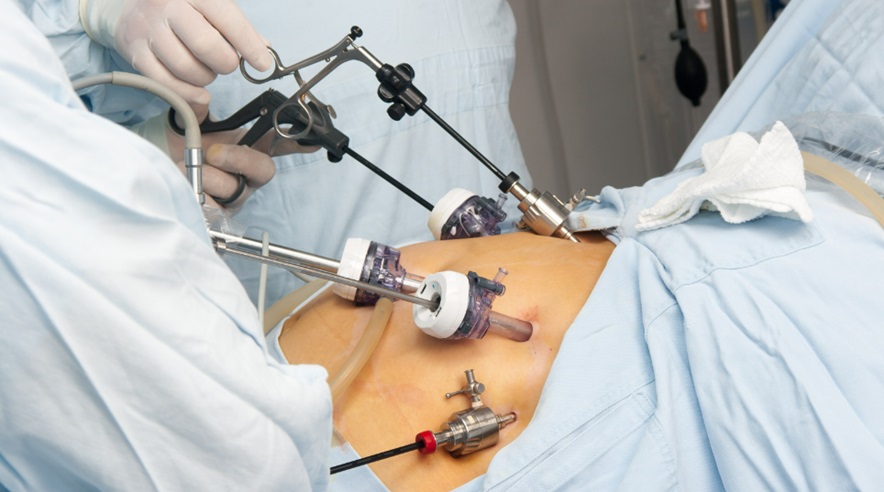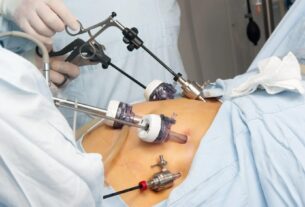Gastric sleeve surgery, or sleeve gastrectomy, is gaining popularity among those seeking effective weight loss solutions. This procedure involves the removal of a substantial portion of the stomach, leaving a small, sleeve-shaped organ roughly the size of a banana. This significant reduction not only restricts food intake but also modifies hormonal signals associated with appetite and feelings of fullness. You just need to make sure to seek a reputable professional for gastric sleeve in Mexico so that you can get the best results and care.
However, aside from being a weight loss tool, gastric sleeve surgery also has numerous other benefits that can greatly improve overall health. In this article, we will explore how gastric sleeve surgery can positively impact your physical and mental well-being.
Advantages of Gastric Sleeve Surgery
One of the most alluring aspects of gastric sleeve surgery is its potential for substantial weight loss in a relatively short period. Many patients report losing up to 60-70% of their excess weight within 12 to 18 months post-surgery. This dramatic loss can lead to a significant improvement in overall health, reducing the risk of obesity-related illnesses such as diabetes, hypertension, and sleep apnea. Furthermore, it has been associated with increased mobility, enhanced self-esteem, and a better quality of life.
The procedure is typically minimally invasive, relying on laparoscopic techniques that reduce recovery time and scarring. Patients often experience a shortened hospital stay, allowing them to return to their daily activities sooner compared to traditional open surgeries. Moreover, studies indicate that the risks of complications are generally low when performed by experienced surgeons. Those considering this option can read this article to learn more about the benefits of gastric sleeve surgery and gain further insights into how it can change lives.
The Process of Gastric Sleeve Surgery
Before undergoing gastric sleeve surgery, a thorough evaluation is essential. This involves a thorough medical evaluation and discussions with healthcare professionals to confirm that the patient is an appropriate candidate for the procedure. During the initial consultation, potential candidates are educated about the surgery, recovery process, and required lifestyle changes. This preparation is critical to success, as post-operative adherence to diet and exercise recommendations plays a significant role in achieving desired outcomes.
After completing the preparatory phase, the surgery is scheduled. Typically performed under general anesthesia, the surgeon will make several small incisions in the abdomen to access the stomach. Using a laparoscope, they will then remove approximately 80% of the stomach, leaving the sleeve-shaped structure behind. Following the procedure, patients generally remain in the hospital for a brief period before being discharged with specific post-operative care instructions.
Lifestyle Changes After Surgery
Post-surgery, individuals will need to adapt to a new eating regime that promotes effective weight loss and overall wellness. The initial weeks involve a liquid diet, gradually progressing to pureed foods and then to solid foods over time. This staged approach allows the stomach to heal while enabling patients to understand portion control and nutrition.
Alongside dietary modifications, integrating regular physical activity is essential for maximizing weight loss outcomes. Combining cardiovascular exercise with strength training not only promotes fat loss but also helps preserve muscle mass. It’s important for individuals to set realistic goals and seek guidance from nutritionists or dietitians for structured meal planning to effectively support their journey.
Conclusion
Gastric sleeve surgery is a life-changing solution for those confronting significant weight challenges, offering numerous health benefits and leading to substantial lifestyle changes. By understanding the advantages of this procedure and embracing necessary lifestyle adjustments, individuals can make significant strides toward a healthier and more fulfilling future. If you are considering this transformative journey, it is essential to conduct thorough research and consult with qualified professionals to ensure a safe and successful experience.
Frequently Asked Questions
Will I need to take vitamins after surgery?
Yes, due to the reduced size of the stomach, patients are generally required to take multivitamins and specific supplements, such as vitamin B12, iron, and calcium, to prevent nutritional deficiencies. Regular follow-ups with healthcare providers will help ensure that nutritional needs are being met effectively.
Will I need to have follow-up appointments after surgery?
Yes, follow-up appointments are essential for monitoring progress, addressing any concerns, and ensuring that nutritional needs are being met. These check-ups typically occur at regular intervals throughout the first year and may continue long-term to support ongoing health and wellness.





